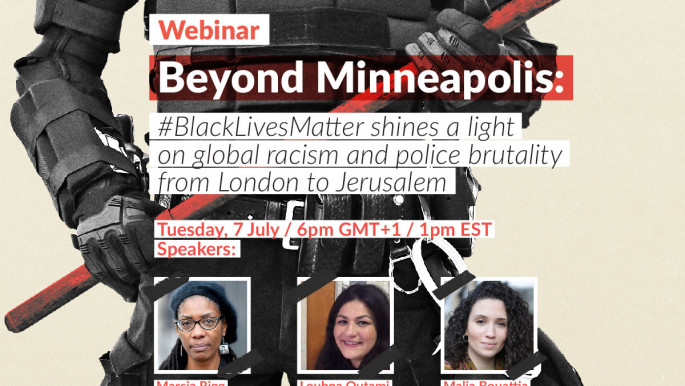US killing of Qassem Soleimani was 'unlawful', says UN expert
A UN expert found the US' killing of Iranian military commander Qassem Soleimani to be in contravention of international law.
3 min read
Agnes Callamard will present her findings to the Human Rights Council on Thursday [Getty]
The US' killing of top Iranian general Qasem Soleimani in Iraq amounted to a violation of international law, a prominent UN human rights expert stated in a report unveiled this week.
Soleimani and nine other people were killed in a US drone strike on 3 January, as the military commander's convoy was leaving Baghdad airport.
A report by Agnes Callamard, UN special rapporteur on extrajudicial, summary or arbitrary executions, found the strike to have violated the UN Charter and represented the first known incident in which a country invoked the right to self-defence to justify an attack against a state actor in another territory.
Days after Soleimani's killing, the US told the UN the decision was made in "self-defence". It addeed that it was "prepared to take additional actions in the region as necessary to continue to protect US personnel and interests".
Callamard said Washington provided no evidence that Soleimani was planning an imminent attack against US interests.
"Major General Soleimani was in charge of Iran military strategy, and actions, in Syria and Iraq," she wrote in the report. "But absent an actual imminent threat to life, the course of action taken by the US was unlawful."
|
She also warned that the US' move will set a dangerous precedent.
"The international community must now confront the very real prospect that States may opt to 'strategically' eliminate high ranking military officials outside the context of a 'known' war, and seek to justify the killing on the grounds of the target's classification as a 'terrorist' who posed a potential future threat," wrote Callamard.
The independent expert also urged accountability and transparency for targeted killings by armed drones, the use of which should be controlled and regulated.
 |
| Click to register now - webinar today! |
According to Reuters, Callamard is due to present her findings on Thursday to the Human Rights Council, a forum the US withdrew from two years ago.
Soleimani led the Quds Force, the extraterritorial branch of the Islamic Revolutionary Guards Corps, and had been involved in the creation of the Iraqi Popular Mobilisation Forces militias, as well as foreign fighter groups which propped up Bashar Al-Assad's regime in Syria.
After the military commander's killing, Iran in January fired missiles at Iraqi air bases hosting US and foreign troops.
Also in January, Iran mistakenly shot down a Ukranian passenger plane as it took off from Tehran airport, killing all 176 people on board.
Last month, Iran issued an arrest warrant and asked Interpol for help in detaining US President Donald Trump and dozens of others it believes carried out the drone strike that killed Soleimani.
Follow us on Facebook, Twitter and Instagram to stay connected





 Follow the Middle East's top stories in English at The New Arab on Google News
Follow the Middle East's top stories in English at The New Arab on Google News


